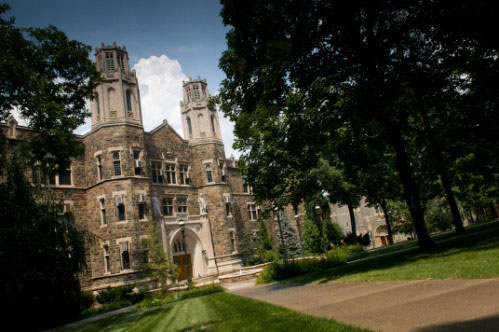Math/Science Core - 36 Credits
15 Credits - MATH 21, 22, 23, 205
9 Credits - PHYS 11, 12, CHM 30
12 Credits - Select three of the following five course combinations:
- -BIOS 041 & 042
- -CHM 110 & 111
- -EES gateway courses
- -PHY 021 & 022
- -MATH 231
Engineering Concentration - 36 Credits
Interdisciplinary Theme: an approved interdisciplinary theme in engineering that can be coordinated with a liberal arts concentration.
OR
Engineering Discipline: a defined engineering discipline, e.g., mechanical engineering. Students will follow a concentration in the curriculum defined by the chosen area.
Arts and Science Concentration - 36 Credits
Interdisciplinary Theme: an approved interdisciplinary theme n arts and sciences that can be coordinated with an engineering concentration.
Liberal Arts Discipline: a defined liberal arts discipline, e.g., English. Students will follow the curriculum defined by the chosen concentration. Students may select mathematics or science as the liberal arts discipline. However, the humanities and social science distribution requirement (8 credits of humanities and 8 credits of social science) must be satisfied using the 16 credit elective core which is also be accepted for distribution in the RCEAS.
IDEAS Seminars - 12 Credits
IDEAS Core Courses replace ENGR 5, ENGL 1, ENGL 2, the CAS college seminar, and the CAS junior year writing intensive requirement. All IDEAS core courses are writing intensive.
IDEA 11 and IDEA 12: the first year IDEAS core courses will emphasize intensive faculty mentoring within a small seminar environment where students develop, write, and present their individual interest areas and select their concentrations.
IDEA 111 and IDEA 112: a continuation of IDEA 11, 12 where interest areas are integrated into themes as individual concentrations are pursued.
IDEA 150 and IDEA 151: the junior year courses have students working on team-based projects and preparing for the senior year thesis work.
IDEA 250 and IDEA 251: the senior year honors thesis courses.
CAS DISTRIBUTION REQUIREMENTS - 16 Credits
8 credits of humanities; 8 credits of social sciences
If some of these credits are fulfilled through the CAS concentration, the remaining credits can:
-be used for a minor
-be geared towards ABET engineering degree requirements

Academic Advising
The program is jointly administered by co-directors from the College of Arts and Sciences and the P.C. Rossin College of Engineering and Applied Science. They, after the first year, become the secondary academic advisors for all IDEAS students.
Primary faculty advisors from appropriate disciplines provide quality curriculum advising in each of the student’s chosen concentrations. Careful advising is required because of the greater flexibility of IDEAS. Students who wish to earn an accredited engineering degree in one additional year should inform their advisors.
For more information visit the program description page or the Lehigh University course catalog.

